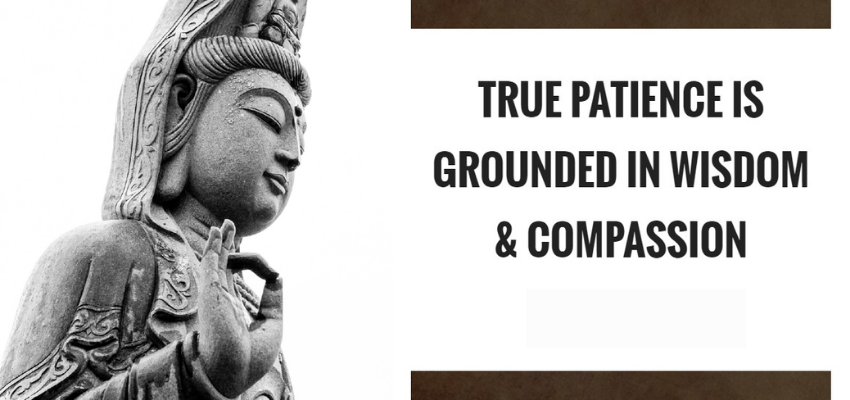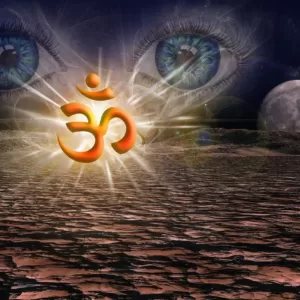.
Spirituality is a vast topic with many different interpretations. In general, it entails a sense of belonging to something larger than oneself, as well as a quest for purpose in life. As a result, spirituality is a universal human experience that affects all of us. A spiritual experience might be described as sacred, sublime, or simply as a strong sense of aliveness and connectivity.

What is meant by Spirituality
Some people may discover that their spiritual lives are intertwined with their affiliation with a church, temple, mosque, or synagogue. Others may turn to prayer or a personal relationship with God or a higher force for comfort. Others look for significance in their relationships with nature or art. Your personal notion of spirituality, like your sense of purpose, may evolve with time.
In these stressful times, we are navigating a tumultuous, seemingly chaotic planet. To me, this represents the end of an age, an era that will soon be coming to an end. Not only is nurturing our spiritual well-being something that everyone can benefit from, but for those who are particularly busy, like writers, doctors, businessmen (small and large), entrepreneurs, and technicians, a daily habit will maintain it.
We know you already follow numerous blogs, and you might be using them to keep up with your spiritual practice. We also know that your spiritual well-being directly impacts your professional and personal life. As a result, we have a difficult time getting any water, because we are too much aware and our minds are too distracted. If you want to improve your ability to focus, be sure to check out a book ”How to master your mind” by Eastside Writers.
The core of Buddhism is practising and working towards self-understanding and a better understanding of the world around you. Many of us are not aware of this, but we are suffering because we do not understand ourselves and the world around us.
Buddha’s view is that there are three key elements to cultivating a habit.
1.Spirituality-Be truthful to yourself.
It happened once during Buddha’s lifetime when someone became envious of Buddha’s name and fame. He reasoned that if Buddha could speak about and teach others about transformation, then so could I. As a result, he joined Buddha’s ashram, the Buddha’s Sangha. He stayed, absorbed Buddha’s teachings, and then began to teach others how to reform people as well. While there, he thoroughly mastered Buddha’s teachings and then began to demonstrate to others how they, too, might do the same.
The rumour that he can also alter people spread far and wide, as did the knowledge that he had the ability to transform the disciples. A small number of individuals became interested in him and began to follow him. When the word eventually reached Buddha, someone told him that he needed to stop. “Let him do what he wants to do,” Buddha simply stated, in His tranquil compassionate state. Nothing else matters except for the fact of truth. This is an example of the self-decomposition of bogus elements. Real identity, on the other hand, is capable of sustaining itself through time. That’s what happened as a result. As the truth became more widely known, many individuals began to recognise what was true. As a result
Lord Buddha would have shared this First Truth with all of you if He were physically present in this current time. First and foremost, I advocate for the Be Natural teaching. Don’t idealise anything. Know who you are. There’s nothing wrong with you the way you are now. Stop struggling. Allow it to be just as it is. Simply be aware of the facts. The sum of who you are. It all depends on who you are and what you do. It doesn’t matter who you are; just act like yourself.
2.Spirituality-Honest friendship
The second but most valuable teaching according to Lord Buddha is the ‘Friendship Sense’. Develop an appreciation for friendship. Consider everyone as a friend. Make no distinctions. Separate and do not divide. If you do it unknowingly, you are walking down the path of ignorance. That is not the way to transform. Everyone is connected to the same Source. There is a solitary Creator. There is no point in discussing whether “you are higher or I am lower,” whether “I am higher and you are lower,” or whether “your God is more powerful than mine.” Every single one of us is equal. Therefore, live in that Truth and regard everyone as a friend.
Our family is this world. We are one family, and we are all friends. And we must look out for one another. Wherever we are, look after your neighbours. Therefore, consider everyone as a friend. This is how Lord Buddha viewed everyone – with Maitri Bhaav in particular – with that sense of friendship. For each of those with whom He interacted. If that sensation is not present, allow it to develop over time. The transformation will take care of that for you. However, be cognizant of the sense that “I am a friend to everyone.” They are all my friends. Each of us is equal.“ That is the feeling that each of us must possess.
3.Spirituality-Power of forgiving

The Final but not anything lesser is the third point. According to Lord Buddha’s philosophy, this is critical for any spiritual seeker. It is a matter of forgiving. Allow others to forgive you while you forgive others. Emotionally, it’s a very taxing and difficult subject, but it’s critical for your spiritual development. You are carrying that baggage unnecessarily, and it is past time for you to take this seriously. Release yourself from any such pain if you are unable to forgive someone who has caused you pain or hurt. You become immobile in your spiritual development; at the same time, the other person does not grow or evolve.
We are all connected
We are all connected. Therefore if you are imprisoned by this emotion, the other person is also imprisoned. Hence check yourself to see if there is anything similar if there is any such pain within your body or mind that is impeding your growth. Therefore, at any point in the future, try this if you feel internal, naturally inclined to do so. Carry out this action in the presence of Divine Light to liberate yourself from this pain. In life, there is so much to discover. Excellent things are about to occur. Why should you be held back by your past? Proceed. Release yourself from the shackles of your past. Make your way toward the light. Make no attempt to halt yourself. Therefore, pardon others. If you require our assistance, we are available and will guide you through this process so that you can advance further along this path of transformation.
Lord Buddha has shared with us these three vital points, three actions that you can take to change your life- a shift towards spirituality. These are extremely vital spiritual practises / teachings to adhere to. If you put off such good things for even a moment, your mind may fall into that well of darkness. Why would anyone want to wait for something like this?
Be prudent and vigilant. Make the most of your time. If there is anything worthwhile that you wish to accomplish, do not delay. Simply do so immediately. Assist yourself. Assist others.
Spirituality-The seven vital principles to live a fulfilling life.
#1. Anger.
Buddhism teaches us to manage our anger “skillfully” (a term frequently used in Buddhism), which entails a variety of things, most notably leaning into our anger mindfully using the power of our awareness or “presence,” which enables us to “step away” from it and view it more clearly, allowing us to identify and then release its source.
This results in incomprehension, and comprehension results in the cultivation of compassion, the quality of “feeling” what others feel and being compelled to send them our love.
Anger is one of two emotions that fuel aggression and conflict. The majority of Middle Eastern warfare is motivated by anger, anger directed at the “opposition” for defying their own beliefs.
However, this anger could never survive in the absence of proper understanding. It would be cooled in the same way that water is cooled when it comes into contact with a flame.
#2. Overcome fear.
Much of our fear is motivated by our impermanence and the impermanence of everything. Spirituality helps us to overcome the sense of unnecessary fear.
We are fearful of our own demise (so much so that it is the greatest fear of all), fearful of losing our loved ones, fearful of losing our possessions, and fearful of our current lives being turned upside down by the loss of a job, special position, or war. We’re also afraid of failing and of not being good enough.
Whether it is a result of an awareness of the impermanence of all things or our inner dialogue, we can overcome fear by identifying its source (its source).
This is accomplished through self-inquiry, or introspection—the practice of looking within until the source of our suffering is discovered.
Fear is the second of the two emotions that contribute to war, frequently resulting in dangerous and irrational acts of self-defence without justification due to paranoia.
Oftentimes, it is the pain that fear causes us to flee (the fear of our own death makes us run from it and want to postpone it at all cost). However, if we dig a little deeper and are honest with ourselves, we will discover that not everything is as it appears.
Additionally, simply discovering the truth is therapeutic in and of itself. All that is required is for us to observe mindfully, to be fully present for our feelings, and to transform ourselves.
#3.Live life as a “whole”
The sensation of a “void”—the sense that something is missing—as if life should contain “more”—is universal.
Many of us interpret the feeling differently, but we all experience it—we feel as if we’re missing a piece as if we’re only half of a whole (thinking we need “the one” to complete us) as if we need to acquire something in order to be happy as if we’re a part of something greater and need to connect with it as if we’re a shadow of our potential and must work hard to become the “greatest version” of ourselves.
At the end of the day, this is all about the same thing: the sense that we are less than “whole.” Spirituality helps us to overcome this concept.
This is unfortunate, but it occurs naturally and without our intervention, so there is no point in beating yourself up over it. We can, however, take action. The reality is that we are not missing anything at all, and thus any attempt to “fill” this void is doomed to fail from the start.
Buddhist wisdom
Buddhist wisdom teaches us that everything is exactly as it should be; it’s just difficult to grasp at first glance because the world isn’t quite as it appears.
As opposed to being static, solid, and distinct as it appears to us, deep meditation and observation reveal that everything is much more akin to a giant organism- impermanent (constantly dying, being born, or being interchanged), ever-flowing, impenetrable, and devoid of any truly “separate” pieces because everything is interconnected and interdependent on itself, much like a massive woven tapestry.
This obviously makes us feel insane unless we deeply understand that everything is exactly as it should be in every moment because this implies that the world is completely out of our control, not stable, and constantly changing, generating a great deal of fear, confusion, paranoia, and discontent. This is what spirituality teaches us.
However, if we can work toward realising this, the sense that something is missing—or that “something” needs to be there in the first place—evaporates.
And it is in this way that we achieve what I refer to as our “natural wholeness.” Because we were always “perfect” (exactly as we were supposed to be).
#4 Meditation.
Our brain is monkey-like! And mindfulness meditation can assist us in capturing it. Spirituality and meditation goes together often side by side.
Many people in today’s society struggle with stress and anxiety.
30% of US adults report that stress has a significant impact on their physical health; 33% report that stress has a significant impact on their mental health*.
That is somewhat alarming, isn’t it? Given that the Buddha coined the phrase “monkey mind” over 2,500 years ago (presumably, there is no way to know for certain), and he never saw an iPhone, iPad, desktop computer, laptop, television, or 1st world work ethic, I’d say “monkey” is a bit tame for us.
However, whether we have a monkey mind or a sugar-injected steroid-enhanced monkey mind, the outcome is the same: we have a crazy, active mind that bounces around like a manic monkey, and the first step toward discovering any greater level of well-being is to bring it to rest.
Tame your Monkey mind
You may not immediately teach your monkey mind how to play Pubg, but with relatively little effort, you can affect a profound change in your mind by meditating.
Meditation, specifical mindfulness of breath, enabled me to calm my mind and eventually bring it to a state of “rest,” effectively eliminating all feelings of stress and anxiety.
We may still experience stress from time to time (it’s natural), but through meditation and our efforts to calm the monkey mind and develop a clear mind capable of receiving insight, we also gain an important tool for maintaining our overall mental well-being, not only removing stress when it arises but also creating an environment in our minds that frequently prevents stress from ever occurring. Spirituality helps to overcome such experiences.
#5. The wealth of wisdom and compassion.

We are the descendants of our loved ones, While the loss of a loved one will never be “easy,” and we will never reach a state of mind where we are completely unaffected by it, Spirituality Self Power and Buddhism contains a wealth of wisdom that can assist us in skillfully managing the sadness and sorrow that accompany it.
The highest wisdom is the recognition that all phenomena are, in fact, incomplete, impermanent, and not self-existent. This understanding is completely liberating and leads to the state of supreme security and happiness known as Nirvana. This is what you call Spirituality.
However, the Buddha makes few references to this level of wisdom. If we simply believe what we are told, this is not wisdom. True wisdom consists in seeing and comprehending for ourselves.
At this level, wisdom is maintaining an open mind rather than being closed-minded, listening to opposing viewpoints rather than being bigoted; carefully examining facts that contradict our beliefs rather than burying our heads in the sand; being objective rather than prejudiced and partisan, and taking our time forming our opinions and beliefs rather than accepting the first or most emotive.
lead the Path Ahead
A person who follows this path is unquestionably wise and is certain to attain true understanding as this is also the path to spirituality. It’s simple to simply believe what you’re told. Courage, patience, adaptability, and intelligence are all required on the Buddhist path.
Just as wisdom encompasses our intellectual or comprehending side, compassion encompasses our emotional or feeling side. Compassion, like wisdom, is a uniquely human quality. Compassion is comprised of two words: ‘co’, which means together, and ‘passion,’ which refers to a strong emotion. And this is the essence of compassion.
When we see another person in distress, feel their pain as if it were our own, and work to alleviate or lessen their suffering, this is compassion. Thus, all that is good in human beings, all the Buddha-like qualities such as sharing, readiness to console, sympathy, concern, and caring are manifestations of compassion.
Additionally, you will notice that the compassionate person’s concern and love for others stem from his or her own concern and love. When we truly understand ourselves, we can truly understand others. And we know what is best for ourselves, we will know what is best for others. When we feel for ourselves, we can feel for others. Thus, in Buddhism, concern for one’s own spiritual development naturally blossoms into concern for the welfare of others. The Buddha’s life exemplifies this perfectly. He struggled for six years for his own welfare before being able to benefit the entire human race.
#6. Remain connected and grounded.
We are intrinsically connected in the most intimate way possible (which eliminates the need for loneliness). Many of us experience loneliness, but not in the same way. Perhaps a close friend or family member has died, we are rather isolated and without many friends or family, or we simply don’t feel as though we have anyone with whom we can connect.
Whatever it is, Buddhist wisdom about our interconnected nature teaches us that we can feel connected to the world around us regardless of whether we are in direct contact with other people.
By virtue of your existence, you are connected to millions of other “beings” – humans, animals, insects, and other organisms, as well as the clouds, the sun, and the trees.
“Insects do not alleviate my loneliness.” I understand, but there is more to it. We are all inextricably linked as human beings.
Which method is the largest and most unifying? The fact that we all suffer in identical ways can bring us together more than anything else.
Indeed, it is our suffering that enables loneliness to exist in the first place. If you’re having a great day, even if you’re alone, you don’t feel particularly lonely, do you? Even if you are alone, you will not, because you will feel fantastic.
Never Self Pity
In this way, we can understand loneliness as the result of a sense of self-pity. Spirituality teaches us and lets us overcome from so-called pseudo loneliness of life.
However, we never do, even when we are physically alone. And now, more than ever, we have avenues for reaching out to and connecting with others who are going through similar experiences. This, in and of itself, can be quite healing.
Even simply sitting and meditating on this knowledge has the potential to liberate. Sit, breathe mindfully, and remember that thousands, if not millions, of other people around the world, are experiencing the same thing (or something similar) right now.
Consider placing your hand on their shoulder and expressing your love and compassion for them. Take a deep breath and remember that you are not alone. You’re all in this together, whether they (or whoever else is out there) are aware of it or not.
#7. Concept of Self and Ego.

Above all else, there is the supreme teaching, the teaching on the ego-our sense of a distinct self. However, before we can truly address the ego, another issue arises. The ego produces what is frequently referred to as our “inner dialogue.” It is the narrative we tell ourselves about ourselves, and it is also the location of our negative self-talk.
Buddhist wisdom teaches us that if we can develop sufficient self-awareness (through our mindfulness practice) to observe this inner dialogue clearly, we can embrace it and transform it into a fertiliser for spiritual growth.
The ego, according to Buddhism, is an erroneous conception of the “self” as a self-contained entity. It is the concept of the ego’s inherent nature. This is how a mind that has not grasped the concept of emptiness views “self.” What exactly is emptiness? It is the absence of all things’ inherent existence.
The illusory existence of a permanent self: Certain Buddhist sources make a hasty abbreviation and refer to the “illusory self,” but what Buddhism actually means is the illusion of a permanent self, not “self” at all (because no one can deny the sense of own uniqueness and inner identity, mission, function and karmic history). However, one’s sense of existence is dynamic and impermanent. A person’s personality cannot be carried over to a subsequent life – and thus the concept of a permanent self is illusory.
Without awareness of this, a person may develop attachments to desires and sufferings generated by the ego’s “small self.” Nonetheless, even within the mind of the small self of the ego, there is the potential for higher thought and behaviour. A proper practice can materialise this potential and result in a transformation toward revealing one’s Buddhanature.
Conclusion:
At the moment, our world is sending us those messages and signs. Balance and harmony achieved through individual inner peace must be the way forward for humanity. India’s contribution and source are critical: it is our spiritual cradle and source of strength. India’s prayers, meditations, and devotions, regardless of religion, tradition, or practice, are more needed than ever. This incredible act of generosity may be the only way for us to remember what it means to be truly human.
Excerpts are taken from https://buddhaimonia.com
Originally posted 2021-05-29 09:49:25.







Pingback: The Different Stages Of One's Life In Indian Ashram And Its Significance - Eastside Writers
Pingback: The Infamous Kali Yuga, Has It Ended? What Lies Ahead? - Eastside Writers
Pingback: Self Samadhi - Leaving Your Body At Your Own Will
Pingback: Meditation Is No Luxury. It Is A Necessity In Today's Chaotic World.
Pingback: Subtle Bodies-The Importance And Consequences Of Subtle Body
Pingback: Does God Answer Our Prayers In 2022 - Eastside Writers
Pingback: The Cosmic Connection Between You And Your Soulmate - Eastside Writers
Pingback: In Pursuit Of Happiness - The Brain Factor
Pingback: Vedic Mantra Helps Reduce Your Anxiety And Depression - Eastside Writers
Pingback: The Infamous Tantra Traditions and Sexual Practices - Eastside Writers
Pingback: Why Om Is The Universal Mantra- Usefulness Of Its Sound And Chanting - Eastside Writers
Pingback: Learn How different nine shapes of your nose can reveal your personality - Eastside Writers
Pingback: Fundamentals And Importance Of " Ekadashi" -The Hindu Tradition.
Pingback: The Power of Nadi: Exploring the Mysteries of Life Force Energy and Its Connection to Prana Kriya Practice - Eastside Writers
Pingback: The Divine Bow: Unveiling the Mystical Significance and Philosophical Depths of Namaste - India's Ancient Art of Salutation - Eastside Writers
Pingback: The Gateway To Super-Consciousness: The Profound Spiritual Significance Of The Medulla Oblongata - Eastside Writers
Pingback: Learning Tantra Meditation to awaken Kundalini in you - Eastside Writers
Pingback: The Divine Architect: Crafting the Universe and Beyond As Per Ancient Hindu Texts - Eastside Writers
Pingback: What makes nudity commonplace in Greek society, yet so meticulous in Indian culture? - Eastside Writers
Pingback: Unlocking Holistic Growth Through The Power Of Seva-The Art Of Selfless Service - Eastside Writers
Pingback: Vastu Shastra Art-The Principles and Importance